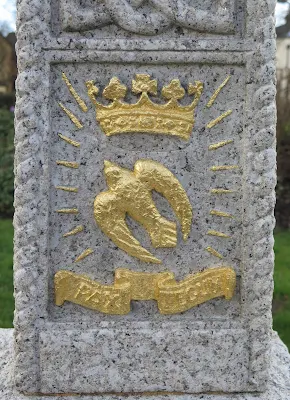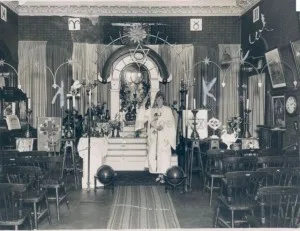 |
| 1967 |
Opening boxes of old books saved from our flooded basement, it’s a return to the past, a return to what used to interest me. This includes beekeeping, honey bees, dowsing, divination, psychic healing, Biblical prophecy, British-Israelites, The holy bible, King James Version, the Great Year, remote viewing, and various ancient texts. It is all an infiltration into consciousness, flirtations, amusements, hangovers, expressions of absurdity, delirium, a hullabaloo that came and went but is still a part of my inner being.
Even back in the 1970s I read about biblical prophecy, what crack pots said would be our future, but these many years later their prophecies are the same, not revised, not changed, and they are happening as predicted. What I refer to, specifically, is a prophesied authoritarian and oppressive government; politicians come bearing gifts but the population will pay for whatever is offered—we’re already no longer free men and free women—and it is a very frightening dystopian future we are facing. Looked at this way, there is no political right wing and left wing; one side may be more benign than the other, but in either case there is still the loss of freedom, there is only the question as to how many of your rights and freedoms will be lost. All governments give you some dust with one hand and, with sleight of hand agility, they take from you what they want. You won’t get back what government has taken from you; they reach into your soul and pull out your inner being, like a rabbit from a hat. In other words, there is only who will oppress you more than the other and who will leave you alone. I want to be left alone.
I still have many books on beekeeping, I learned the craft from two friends, RR Skinner and George Johnston. I used to go to the Miner Institute, in Chazy, New York State, with George for all day classes on beekeeping; these two men—Reg and George, living on different continents—were mentors. I love the honey bee and I love observing them, being near them, these industrious bees who wish no one harm, who spend their days collecting pollen and nectar from wild asters and other flowers, and without them our crops would not be pollinated and we would eventually perish. By the end of summer they have worn out their wings which are visibly frayed and old.
What still maintains my interest? It is family history, gardening, and walking, that’s what’s left in old age. Here are some other books (saved from our flooded basement) that I enjoyed reading, books by the British writer T.C. Lethbridge. I bought some of these books in London, UK, in the mid-1980s; Lethbridge is one of those peculiar thinkers—he held prominence at Cambridge University (for thirty years Director of Excavations for the Cambridge Antiquarian Society and for the Cambridge University Museum of Archaeology and Anthropology)—an original thinker who couldn’t be contained by narrow thinking and who found his audience outside of the establishment. Lethbridge might be classified as an eccentric but he is also a model for original thinking, and there are few like him. It’s good to have people like T.C. Lethbridge, they have integrity and expand our idea of how to live in this society, they make life more interesting, and they are not politicians, they mean no harm. Here is Lethbridge on the educational system:
Many (poets) seem to be able to slip from one layer of the mind to the next without any difficulty. But then to be a real poet you have to sit and think. Few people nowadays have time to do this and would have to go on the dole if they tried to do it. It is the old story of Mary and Martha all over again, over and over again. Martha has no time to spare for thinking about anything of real importance. Our whole educational system is designed to produce Marthas. Mary made time to sit and think about what everything meant. So when she met someone who really knew something, she was able to listen and understand. This may be a parable, or it may be fact, it does not matter which; but the more facts educationalists try to cram into the heads of children, the fewer real thinkers they will produce.
--T.C. Lethbridge, A Step in the Dark, p. 127
 |
| 1965 |
 |
| 1972 |
 |
| 1969 |
 |
| 1976 |
 |
| 1980 |
A few notes:
--My poem, "The Great Year", is on the Internet Archive; it can also be found mentioned on this blog, https://stephenmorrisseyblog.blogspot.com/2011/05/great-year.html
--I suggest reading the King James' version of the bible; despite what some people say, that it is difficult because of apparently archaic language, it is actually not hard to read at all. You will not be disappointed.







,%20BACKWATER-SUNBURY-ON-THAMES,%20OIL%20ON%20BOARD,.jpg)

























